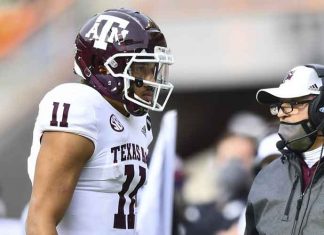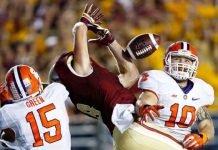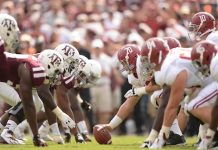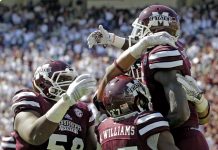(Stats Perform) – Forget the rivalries, FCS schools and conferences are primed to come together and initiate steps toward having a spring season.
The list of conferences that won’t have a fall season due to the COVID-19 pandemic is growing, with the Big Sky and Pioneer League announcing their intentions on Friday and the Missouri Valley Football Conference reportedly next to join a list that also includes the CAA, Ivy, MEAC, Northeast, Patriot and SWAC. Out of 13 conferences, it would leave only the Big South, Ohio Valley, Southern and Southland as those still determining their direction. Preseason practices are underway, so it would seem wise to expediate a resolution to what’s been an agonizing, dragged-out process.
The schools and conferences that move forward with a fall season have the right to do if they continue to meet various COVID-19 protocols. Key leaders in the sport, though, have said they expect there will be interruptions to the season due to coronavirus.
A new FCS game plan is developing, especially now that the possibility of fall playoffs has ended due to a lack of regular-season participants. All conferences that won’t play this fall are already shifting focus to playing in the spring semester if the NCAA allows it and health conditions are deemed safe. There aren’t guarantees, it’s more a possibility.
The overwhelming feeling is, it’s a scenario worth exploring. The SWAC, for one, has announced a plan for a seven-game schedule beginning with an eight-week training period in January.
“We as a country need to be in a different position (medically) by the spring,” said CAA commissioner Joe D’Antonio, who added the news of no fall playoffs “certainly allows the FCS conferences to have an open conversation about what the spring can look like. That (the FCS) is really a respectful, cohesive group.”
“We think if we band together with the other conferences, we can find a way to get it done,” Big Sky commissioner Tom Wistrcill said.
The FCS is often overshadowed by the FBS, but the lower level of Division I is close-knit, and working together has been a theme of the offseason. After the pandemic forced colleges into a shutdown in March, and the NCAA canceled winter and spring championships, FCS members shared ideas and support, all trying to figure out how to get back to the playing fields.
SWAC commissioner Dr. Charles McClelland said he was on teleconferences “sometimes up to four times a week from all 32 (Division I) conferences down to just the FCS (conferences). There’s been a great propensity to share ideas. One person creates a document and we share it, and are welcome to use it.”
If football and other fall sports are shifted to the spring, there will be a substantial period in which fall, winter and spring sports overlap across campuses, which will put stress on facilities and staff. That shouldn’t hold it back from happening, but all schools are going to need a plan.
The FCS plan will include a bunch of teammates.
25% Bonus via Western Union

















